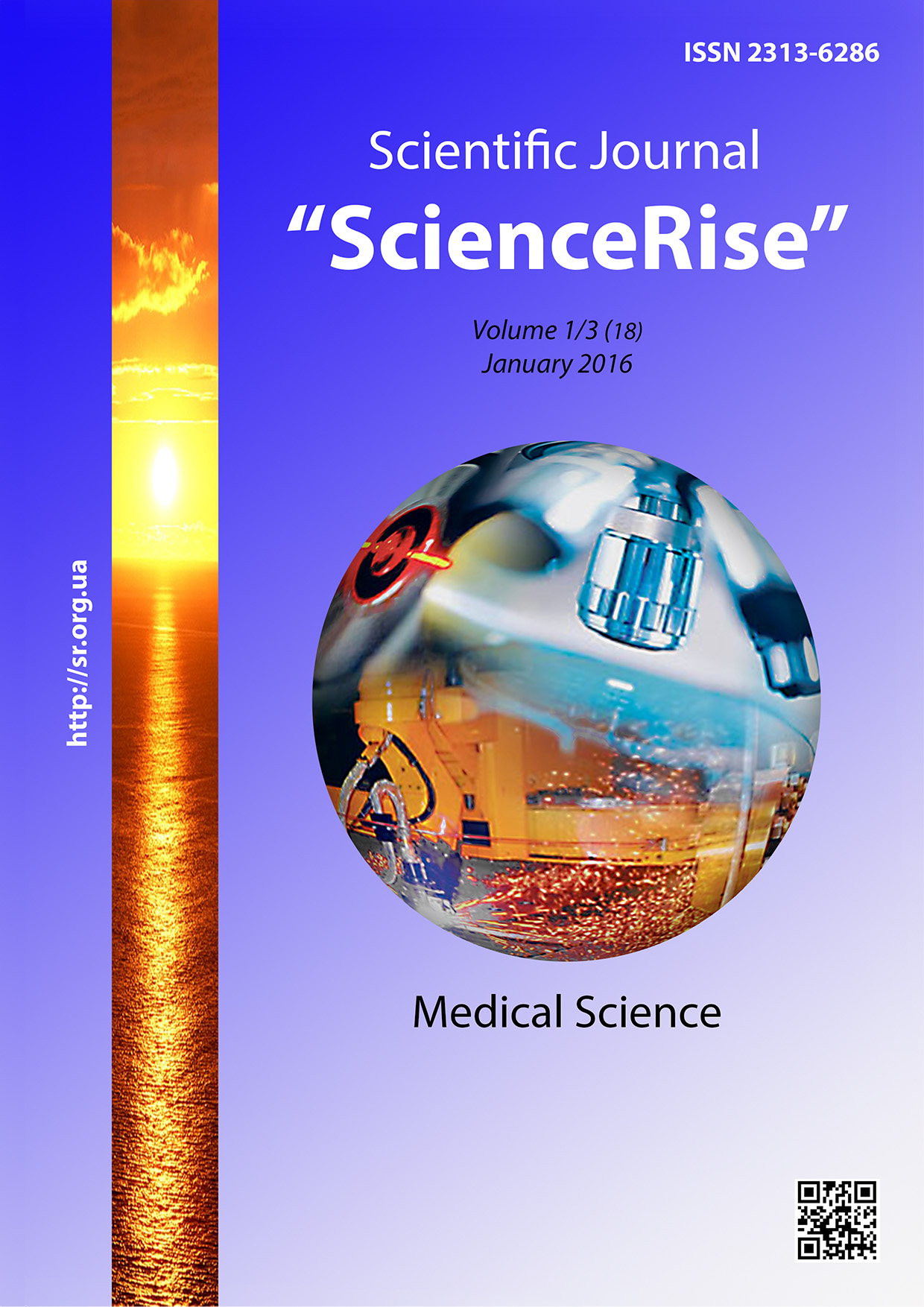Взаимосвязь вариабельности и уровня гликемии со структурно-функциональными показателями сердца у больных хронической сердечной недостаточностью на фоне сахарного диабета 2 типа
DOI :
https://doi.org/10.15587/2313-8416.2016.59329Mots-clés :
хроническая сердечная недостаточность, сахарный диабет, систолическая и диастолическая функция сердца, вариабельность гликемического профиляRésumé
Проанализированы результаты эхокардиографии пациентов с хронической сердечной недостаточностью ишемического генеза на фоне сахарного диабета 2 типа в зависимости от степени вариабельности гликемического профиля и среднего уровня гликемии. Выявлено отрицательное влияние высокой вариабельности гликемии на систолическую и диастолическую функцию сердца, размер левого предсердия, и отсутствие достоверного влияния на кардиогемодинамику среднего уровня гликемии
Références
Kornatsky, V. M. (2013). Problema bolezney sistemy krovoobrashcheniya i puti eye minimizatsii v Ukraine [The problem of cardiovascular diseases and ways to minimize them in Ukraine]. Kardiologiya, 5, 10–13.
Ettinger, O. A. (2012). Khronicheskaya serdechnaya nedostatochnost u bolnykh sakharnym diabetom: sovremennye predstavleniya [Chronic heart failure in patients with diabetes: current understanding]. Farmateka, 16, 80–85.
Shimizu, T., Yoshihisa, A., Kanno, Y., Takiguchi, M., Sato, A., Miura, S. et. al (2015). Relationship of hyperuricemia with mortality in heart failure patients with preserved ejection fraction. American Journal of Physiology – Heart and Circulatory Physiology, 309 (7), H1123–H1129. doi: 10.1152/ajpheart.00533.2015
Klimontov, V. V., Myakina, N. E. (2014). Variabelnost glikemii pri sakharnom diabete: instrument dlya otsenki kachestva glikemicheskogo kontrolya i riska oslozhneny [Glycaemic variability in diabetes: a tool for assessing the quality of glycaemic control and the risk of complications]. Sakharny diabet, 2, 76–82.
Vijan, S., Sussman, J. B., Yudkin, J. S., Hayward, R. A. (2014). Effect of Patients’ Risks and Preferences on Health Gains With Plasma Glucose Level Lowering in Type 2 Diabetes Mellitus. JAMA Internal Medicine, 174 (8), 1227. doi: 10.1001/jamainternmed.2014.2894
Currie, C. J., Peters, J. R., Tynan, A., Evans, M., Heine, R. J., Bracco, O. L. et. al (2010). Survival as a function of HbA1c in people with type 2 diabetes: a retrospective cohort study. The Lancet, 375 (9713), 481–489. doi: 10.1016/s0140-6736(09)61969-3
Krinsley, J. S. (2008). Glycemic variability: A strong independent predictor of mortality in critically ill patients*. Critical Care Medicine, 36 (11), 3008–3013. doi: 10.1097/ccm.0b013e31818b38d2
Nazhmutdinova, P. K. (2014). Nepreryvnoye monitorirovaniye glikemii pri sakharnom diabete 2-go tipa [The continuous monitoring of glucose in diabetes mellitus type 2]. Available at: http://www.remedium.ru/doctor/endocrinology/detail.php?ID=61929
Natsionalnye rekomendatsii OSSN, RKO i RNMOT po diagnostike i lecheniyu KhSN (chetverty peresmotr) [National guidelines PRAs, RKO and RNMOT for diagnosis and treatment of chronic heart failure (fourth revision)] (2013). Zhurnal Serdechnaya Nedostatochnost, 14/7 (81), 379–472. Available at: http://www.scardio.ru/content/Guidelines/SSHF-Guidelines-rev.4.0.1.pdf
Classification and Diagnosis of Diabetes (2014). Diabetes Care, 38, S8–S16. doi: 10.2337/dc15-s005
Lang, R. M., Biering, M., Devereux, R. B. (2012). Rekomendatsii po kolichestvennoy otsenke struktury i funktsii kamer serdtsa [Guidelines for quantification of the structure and function of the heart chambers]. Rossysky kardiologichesky zhurnal, 3 (95), 1–28.
Téléchargements
Publié-e
Numéro
Rubrique
Licence
(c) Tous droits réservés Наталья Игоревна Капшитарь, Виктор Денисович Сыволап 2016

Cette œuvre est sous licence Creative Commons Attribution 4.0 International.
Our journal abides by the Creative Commons CC BY copyright rights and permissions for open access journals.
Authors, who are published in this journal, agree to the following conditions:
1. The authors reserve the right to authorship of the work and pass the first publication right of this work to the journal under the terms of a Creative Commons CC BY, which allows others to freely distribute the published research with the obligatory reference to the authors of the original work and the first publication of the work in this journal.
2. The authors have the right to conclude separate supplement agreements that relate to non-exclusive work distribution in the form in which it has been published by the journal (for example, to upload the work to the online storage of the journal or publish it as part of a monograph), provided that the reference to the first publication of the work in this journal is included.

